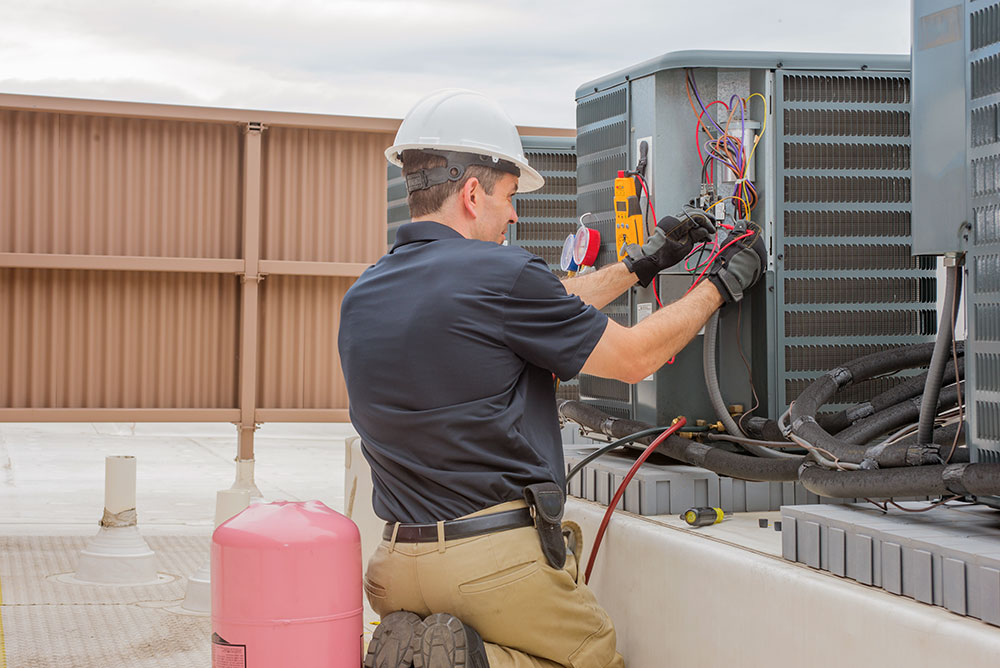
Heating and cooling costs can add up quickly, especially during extreme weather conditions. However, there are several ways to save money on heating and cooling supplies without compromising on comfort. By following these insider tips from experts, you can reduce your energy bills and make your home more energy-efficient.
1. Regular Maintenance
Proper maintenance of your heating and cooling systems is essential to ensure they are running efficiently. By regularly checking and servicing your equipment, you can prevent costly breakdowns and improve their performance.
Tips for maintaining your heating and cooling systems:
- Change air filters regularly to improve airflow and efficiency.
- Clean evaporator and condenser coils to remove dust and debris.
- Inspect ductwork for leaks and seal them to prevent energy loss.
- Schedule annual maintenance with a professional HVAC technician.
2. Use Programmable Thermostats
Investing in a programmable thermostat can help you save money on heating and cooling costs by adjusting the temperature based on your schedule. You can set the thermostat to lower the temperature when you are away or asleep and raise it when you are at home, saving energy without sacrificing comfort.
Tips for using programmable thermostats effectively:
- Set different temperature schedules for weekdays and weekends.
- Adjust the temperature settings based on your daily routine.
- Take advantage of smart thermostats that can be controlled remotely via a mobile app.
- Ensure your thermostat is installed in a central location away from heat sources or drafts.
3. Seal Air Leaks
Air leaks in your home can lead to energy loss and higher heating and cooling costs. By sealing gaps and cracks around windows, doors, and ductwork, you can improve the efficiency of your HVAC system and reduce energy waste.
Tips for sealing air leaks in your home:
- Use weatherstripping to seal gaps around windows and doors.
- Apply caulk to seal cracks in walls, floors, and ceilings.
- Insulate ductwork to prevent air leaks and improve airflow.
- Consider hiring a professional to conduct a home energy audit to identify and seal air leaks.
4. Upgrade Insulation
Proper insulation is key to maintaining a comfortable indoor temperature and reducing heating and cooling costs. By upgrading insulation in your home, you can prevent heat loss in the winter and heat gain in the summer, making your HVAC system more efficient.
Tips for improving insulation in your home:
- Add insulation to attics, walls, and basements to reduce energy loss.
- Use reflective insulation to block heat transfer through windows and walls.
- Seal gaps and cracks in insulation to prevent air leaks.
- Consider installing energy-efficient windows and doors with double or triple glazing.
5. Invest in Energy-Efficient Appliances
Upgrading to energy-efficient heating and cooling appliances can help you save money on energy bills in the long run. Energy Star-rated appliances are designed to consume less energy while providing the same level of comfort, making them a cost-effective choice for homeowners.
Tips for choosing energy-efficient appliances:
- Look for Energy Star labels when purchasing heating and cooling equipment.
- Opt for high-efficiency furnaces, air conditioners, and heat pumps to reduce energy consumption.
- Consider investing in a geothermal heat pump for greater energy savings and environmental benefits.
- Consult with a professional HVAC contractor to determine the best energy-efficient options for your home.
By following these insider tips from experts, you can save money on heating and cooling supplies while reducing your energy bills and making your home more energy-efficient. With a few simple adjustments and upgrades, you can enjoy a comfortable indoor environment without breaking the bank.
